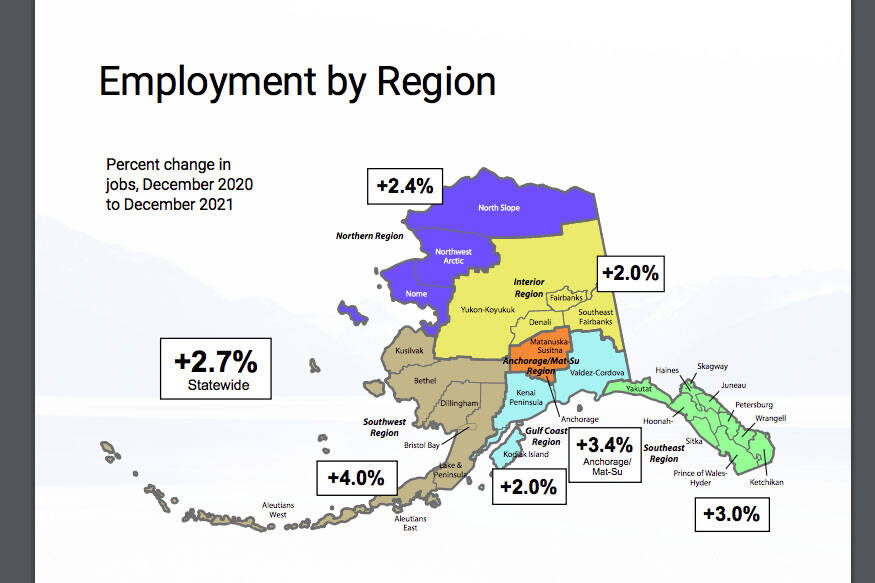While the economy has rebounded slightly in urban Alaska since 2020, inflation last year was the highest it’s been in three decades, according to the February trends report from the state Department of Labor and Workforce Development.
Prices in Alaska — everything from transportation to recreation and energy costs — increased by 4.9% in 2021, according to the report. That’s the highest annual inflation rate measured by the Consumer Price Index for Urban Alaska since 1990.
The first year of the pandemic prompted a huge disruption to local, national and international markets, and Alaska was no exception.
The economic trends report states that demand for goods and services “plummeted” in 2020, as did prices: Energy costs fell by 10.6%; transportation fell 6.8%.
But in 2021, the economy “began to rebound” and prices started to increase again, one of the most notable being the price of energy, the report said.
Compared to May 2020, May 2021 saw a near 26% increase in energy costs. Last year overall, energy costs rose 14.4% from 2020, which drove 16.9% inflation in transportation.
While forecasting economic trends “can be a fool’s errand,” some economic observers expect inflation to slow in 2022, Neal Fried, a researcher and analyst with the department, wrote in the report.
“The price of oil isn’t likely to rise much further — and supply chain issues work themselves out,” Fried wrote in the report. “However, others expect the opposite, that supply chain problems will persist and we’ll enter a period of higher inflation.”
Read the full report at https://labor.alaska.gov/trends/feb22.pdf.
Reach reporter Camille Botello at camille.botello@peninsulaclarion.com.

